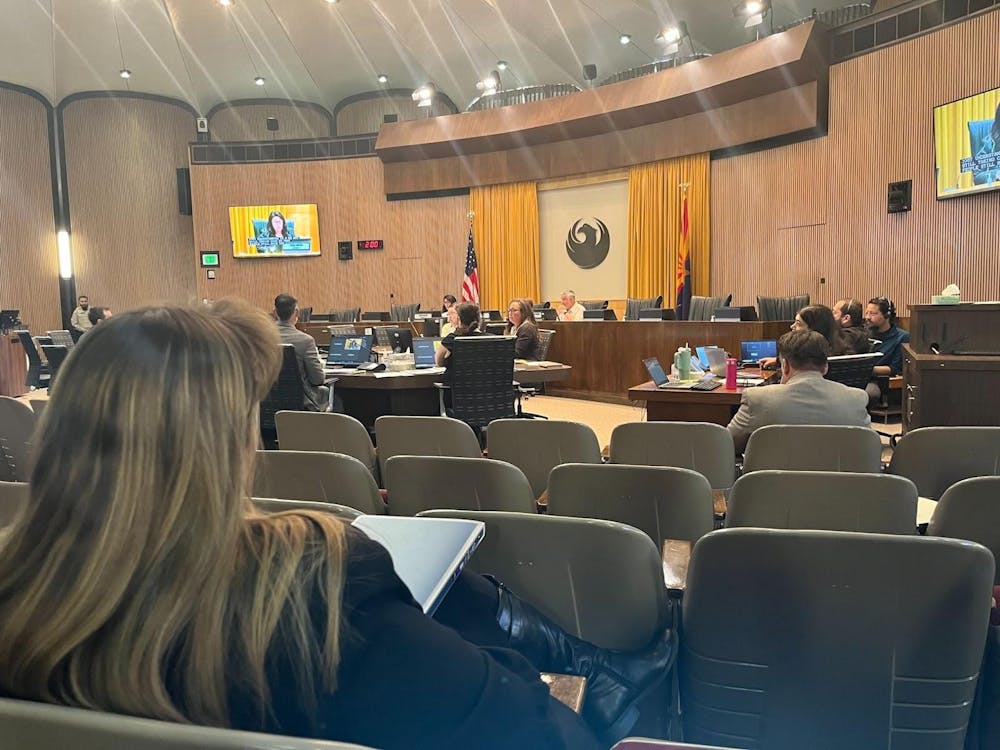PHOENIX — The Phoenix City Council Transportation, Infrastructure and Planning Subcommittee expressed concerns about “carving up communities” during a meeting on Wednesday morning.
The Subcommittee met to discuss temporarily rerouting a bus line, the new transit fare system and discussed policy to allow companies to install fiber optic internet cables to customers. Both community members and the council shared concerns about the potential installation of the cables.
Fiber-to-the-home (FTTH) is high-speed broadband internet that can be purchased by residents and installed by companies such as Gigapower, Google and Cox Communications. Customers as typically residential or small businesses, and surrounding cities such as Mesa and Chandler already permit installation of the cables.
Councilman Carlos Galindo-Elvira, who represents Phoenix’s District 7, serves on the subcommittee. Galindo-Elvira had concerns about the methods in which the cable would be installed beneath city streets.
“I completely do not support carving up our communities,” Galindo-Elvira said.
Microtrenching is the process of making 1-2 inch wide and 10-12 inch deep cuts alongside and across roads to install cable. It is faster and cheaper than boring (horizontal drilling) under the road for utility access, but there is currently no city standard.
Galindo-Elvira also raised concerns about the sealant that would be used to seal these trenches after installation.
“We have no idea how it will respond to the weather considering we have such unforgiving heat in Arizona,” said Galindo-Elvira.
Galindo-Elvira was not the only individual who had concerns about the proposed ordinance.
Shad Ercanbrack is a lobbyist for the Communication Workers of America and he told the story of a Gilbert family who was displaced from their home because of an unlicensed subcontractor that drilled into a sewage line. They had to pay over $88,000 out of their funds for repairs.
“This is a perfect example why we need contractor transparency,” Ercanbrack said. “Without contractor transparency and safety disclosures, Phoenix will be left in the dark about who is working in the right of way, if they are qualified, if local residents are benefiting from this major infrastructure project with good jobs.”
Jeremiah Davis is also a registered lobbyist as well as the president of the Phoenix Communication Workers of America. He raised concerns about the training and licensing of the contractors who will be installing the cable.
“We hope that this subcommittee takes lessons learned from Mesa and other areas seriously,” Davis said.

